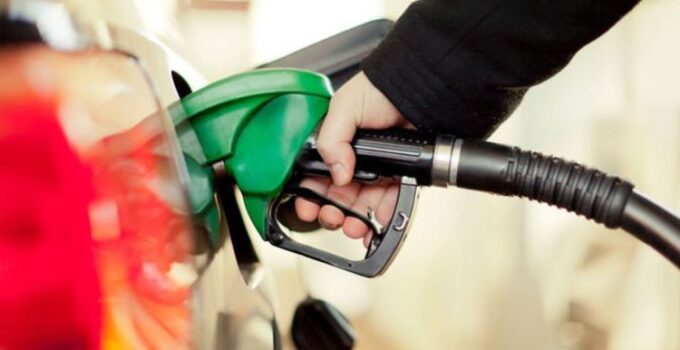Ecology and sustainability are things we aim for at all times. In recent years, the whole world is facing extreme pollution of soil, air, and natural waters. The oceans are full of microplastic, and there are constantly high concentrations of harmful particles in the air.
The biggest problem with conventional fuels is the release of harmful carbon monoxide, which is a major air pollutant. These fuels are also called fossil fuels. In recent years, there have been several attempts to move to a more sustainable solution, ie to use low-carbon eco fuels, which are not oil derivatives.
Vehicle manufacturers are often committed to enabling their models to use low-carbon fuel. Older car models may not be suitable for this type of gasoline, but many of the new releases also have an environmentally friendly alternative. Of course, any step that contributes to sustainability is welcome. People need to get used to environmentally friendly solutions. Solutions start with small changes and then accept as many ways of nature protection as possible.
Some do it by throwing away plastic packaging, others by riding a bicycle instead of a car, but there are those who decide to replace fuels with their eco variant. The concept of green and sustainable gasoline is not unknown. We all aim to reduce our carbon footprint on the environment. You can read more about how these things work at https://www.motortrend.com/news/gasoline-so-clean-its-like-swapping-to-11-million-evs/.
Where does the idea for green gas come from?

Source: cummins.com
It is disappointing and devastating to see people destroy the only planet they have to live on. Awareness has been at a very low level for a long time. People did not understand the harmfulness of their actions, but gradually nature began to return to us. However, we still have time to save our planet. The concept of renewable fuel is also not new. Gas stations have long offered an option for low-carbon, low-carbon fuels. Oils and oils can be recycled to give a new life to the same substance.
Many ways of producing biofuel, which comes with the processing of plants, fruits, and vegetables, have also been discovered. This requires a lot of investment in processing machinery and appropriate infrastructure and logistics. But in the long run, you can save money on fuel if you know how to produce it yourself.
Ideas for ecological alternatives to things around us have been around for a long time. When humanity became aware of the negative impact we have on nature, we rushed to find a way to save it. However, great damage had already been done and a way had to be found to repair it. We are still feeling the effects, and global warming is a direct consequence of deforestation and unsustainable industry.
Motor vehicles are a major polluter of the environment. The situation is so serious that at the very beginning of the Covid-19 pandemic, during the lockdown, it was immediately noticed that there were changes in air quality. Unfortunately, the coronavirus had to happen to us to become even more aware of what was happening around us all the time.
Are there sustainable biofuels?
One of the most interesting ideas for biofuel production is the processing of food products. Wheat, sunflower, apples can be used, but above all, processing technology is needed.
The whole process takes place by taking the crops, grinding them to a pulp, then the mixture ferments, followed by a process of hydrogenation of the separated oils, and with each subsequent stage, we are closer to pure biological fuel.
Efficiency and sustainability are seen in the fact that low-carbon fuels are compatible with multiple vehicles. At the same time, they are slightly more expensive than regular fuel, but many consumers think that the price is worth the protection of nature.
Such fuels are produced from biomass, which complies with EU standards for zero carbon dioxide content. But in principle, they should be mixed with fossil fuels in order to achieve the desired energy value.
Therefore, it can be said that the fuel obtained in this way is partially sustainable because petroleum products are still used. The difference is that the overall impact on the environment is so reduced that the difference is visible after only a few weeks.
Another possible side effect may be that fuel efficiency is declining. This is not noticeable in small compact cars, but in larger vehicles, such as SUVs or vans, a difference in fuel power can be seen.
Does this mean there is legit low-carbon gasoline?

Source: favpng.com
Even though it’s not pretty common, many people already mix their regular fuel with low-carbon gasoline. Surely, the substances must be compatible, so they won’t destroy the engine. But if you put in a little more effort, you will find gas stations that provide low-carbon and sustainable gasoline. As we said, it could be a little more expensive than the regular gas, but we are sure every penny invested is worth it.
In the end, we are trying to protect the environment, which is a huge goal. Many people don’t even pay attention to it nowadays. So, if you want, you can get informed about the options you have on this.
The final verdict
Several types of fuel and eco gasoline are produced from the so-called biomass. In this way, the global shortages of oil are compensated. In conditions when the price of oil is very variable, and thus of its derivatives, biofuel can be a much simpler solution.
The first generation of biofuels is the one that comes from a mass of cereals and fruits. The second generation of eco fuels comes from the processing of non-edible organic products, such as decomposable waste, algae, grass, and pieces of wood.
However, the final conclusion is that such gasoline cannot completely exclude the emission of harmful gases. On the contrary, it is a process of reducing the impact of humanity on the environment. Although not a very big step, it is still a significant change that in the future will allow each of us to reduce our carbon footprint in the environment.






